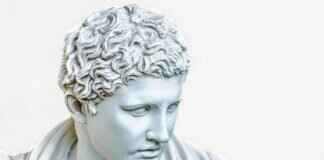This article explores the top portable coffee makers perfect for camping, ensuring you can enjoy a delicious cup of coffee wherever your adventures take you.
Why Choose a Portable Coffee Maker for Camping?
Portable coffee makers offer convenience and quality, allowing campers to brew fresh coffee in the great outdoors without sacrificing flavor or experience. Whether you’re waking up to the sound of chirping birds or relaxing by the campfire, a good cup of coffee can enhance your camping experience.
Types of Portable Coffee Makers
Understanding the different types of portable coffee makers can help you choose the best one for your camping style, whether you prefer manual methods or electric options.
- Manual Coffee Makers: Lightweight and do not require electricity, making them ideal for camping.
- Electric Coffee Makers: Convenient for car camping where power sources are available.
Key Features to Consider
When selecting a portable coffee maker for camping, consider factors like size, weight, brewing time, and ease of cleaning to ensure it meets your needs.
- Size and Weight: Opt for lightweight and compact options that fit easily in your camping gear.
- Brewing Time: Look for coffee makers that offer quick brewing without compromising on taste.
Top Recommendations for Portable Coffee Makers
Here are some of the best portable coffee makers available on the market, each with unique features that cater to various camping preferences:
- Best Overall: AeroPress Coffee Maker – Highly rated for its portability and efficiency.
- Best Budget Option: French Press – Offers excellent value for money and a great coffee experience.
Tips for Brewing Coffee While Camping
Brewing coffee in the wild can be a rewarding experience. Here are some tips to enhance your camping coffee-making skills:
- Use Fresh Coffee Beans: For the best flavor, use freshly ground coffee beans.
- Experiment with Water Temperature: Aim for water that is just below boiling for optimal extraction.
Conclusion: Enjoying Coffee in the Great Outdoors
With the right portable coffee maker, you can enjoy a delicious cup of coffee while camping, enhancing your outdoor experience. Choose a model that fits your needs, and savor your morning brew under the open sky.

Why Choose a Portable Coffee Maker for Camping?
When venturing into the great outdoors, the last thing you want is to compromise on your morning routine. Portable coffee makers are essential tools for any camping enthusiast, providing the perfect blend of convenience and quality. Imagine waking up to the aroma of freshly brewed coffee amidst the serene backdrop of nature. These compact devices allow you to brew your favorite coffee without sacrificing flavor or experience, making them a must-have for camping trips.
One of the primary reasons to opt for a portable coffee maker is versatility. Whether you prefer a robust French press or a quick AeroPress, there’s a model to suit every taste and brewing style. Many portable coffee makers are designed to be lightweight and compact, fitting easily into your backpack or camping gear. This means you can carry your coffee-making essentials without adding unnecessary bulk.
Moreover, using a portable coffee maker enhances your camping experience by allowing you to enjoy a high-quality cup of coffee wherever you are. This is especially important for those who rely on their morning brew to kickstart their day. The ability to brew coffee in the wild not only boosts morale but also creates a sense of comfort and familiarity in an otherwise rugged environment.
Additionally, many models do not require electricity, making them ideal for remote camping locations. This independence from power sources means you can enjoy your coffee without worrying about battery life or finding an outlet. Furthermore, the simplicity of brewing coffee outdoors fosters a deeper connection with nature, turning a mundane task into a delightful ritual.
In summary, choosing a portable coffee maker for camping allows you to enjoy the full flavor and experience of your favorite beverage, no matter where your adventures take you. With the right equipment, every camping trip can start with a perfect cup of coffee, enhancing your overall outdoor experience.

Types of Portable Coffee Makers
When it comes to enjoying a freshly brewed cup of coffee while camping, understanding the different types of portable coffee makers is crucial. This knowledge allows you to select the best option that aligns with your camping style, whether you favor manual brewing methods or electric alternatives.
Manual Coffee Makers
Manual coffee makers are an excellent choice for campers who prioritize lightweight and compact gear. These devices do not require electricity, making them ideal for remote locations. Moreover, they often deliver a rich flavor, enhancing the overall coffee experience.
- French Press: A classic and beloved choice, the French press is known for its simplicity and ability to produce a robust flavor. It’s easy to use and clean, making it a favorite among outdoor enthusiasts.
- AeroPress: Compact and versatile, the AeroPress allows for quick and easy brewing. Its unique design ensures a smooth, rich cup of coffee every time, making it a popular option for campers.
Electric Coffee Makers
For those who opt for car camping where power sources are available, electric coffee makers can provide a familiar brewing experience. While they may require more space and weight, they offer the convenience of brewing coffee with minimal effort.
- Single-Serve Pod Machines: These machines use pre-packaged coffee pods for quick brewing. They are user-friendly and perfect for those who want a hassle-free coffee experience.
- Drip Coffee Makers: If you have access to electricity, a compact drip coffee maker can brew multiple cups at once, making it great for group camping trips.
Ultimately, the choice between manual and electric coffee makers depends on your specific camping needs. Consider factors such as size, weight, and brewing time to ensure you select the best portable coffee maker for your adventures.
Manual Coffee Makers
have gained popularity among camping enthusiasts due to their lightweight design and the fact that they do not require electricity. This makes them an excellent choice for those looking to enjoy a great cup of coffee in the great outdoors without the hassle of finding a power source. The absence of electrical components also means they are less likely to break, making them ideal for rugged environments.
One of the standout features of manual coffee makers is their ability to produce a rich and flavorful brew. Unlike some electric machines that may rely on automated processes, manual methods allow for a more hands-on brewing experience. Campers can control the brewing time and water temperature, which are crucial factors in extracting the best flavors from the coffee grounds.
Among the various types of manual coffee makers, the French Press is a classic favorite. It is not only easy to use but also provides a robust flavor profile that many coffee lovers cherish. The simplicity of the French press means that it can be cleaned easily with just a few rinses, making it a practical choice for camping trips.
Another popular option is the AeroPress. This innovative device is compact and versatile, allowing users to brew coffee quickly and efficiently. The unique design of the AeroPress ensures a smooth cup of coffee, and it can even produce espresso-like drinks, making it a favorite among coffee aficionados.
In conclusion, manual coffee makers are a fantastic addition to any camping gear. They offer the perfect blend of convenience, quality, and flavor, allowing you to enjoy your morning brew anywhere your adventures take you. Whether you choose a French press or an AeroPress, you can be sure that your coffee experience will be both enjoyable and memorable.
French Press
The French press is not just a coffee maker; it is a beloved companion for camping enthusiasts who appreciate a rich and flavorful brew. Its design is straightforward, allowing anyone to create a delicious cup of coffee with minimal effort. This manual brewing method is particularly appealing for those who enjoy the outdoors, as it requires no electricity and is remarkably easy to clean.
One of the standout features of the French press is its ability to extract the full flavor profile of coffee beans. By steeping the grounds in hot water and then pressing them down with a plunger, you achieve a robust and aromatic cup that many consider superior to other brewing methods. This hands-on approach not only enhances the overall experience but also allows you to connect more with the coffee-making process.
When camping, packing light is crucial, and the French press fits the bill perfectly. Most models are lightweight and compact, making them easy to transport without taking up much space in your gear. Additionally, they are durable and can withstand the rigors of outdoor use, ensuring that you can enjoy your coffee no matter where your adventures take you.
Cleaning the French press is also a breeze. After enjoying your coffee, simply rinse the carafe and plunger with water, and you’re good to go. This ease of maintenance makes it a favorite among campers who want to spend more time enjoying nature and less time on cleanup.
In conclusion, the French press stands out as a classic choice for camping, combining simplicity, efficiency, and excellent flavor. Whether you are a seasoned camper or a novice, this coffee maker will undoubtedly enhance your outdoor experience, allowing you to savor every moment with a freshly brewed cup of coffee.
AeroPress
is a remarkable coffee brewing device that has gained immense popularity among outdoor enthusiasts and coffee lovers alike. Its compact design and versatility make it an ideal choice for camping trips, ensuring that you can enjoy a delicious cup of coffee no matter where you are.
The allows you to brew coffee quickly and easily, making it perfect for those early mornings in the great outdoors. Its unique brewing method combines immersion and pressure, resulting in a smooth, rich cup of coffee that is often compared to espresso. This innovative design not only enhances the flavor but also minimizes bitterness, ensuring a delightful experience with every sip.
One of the standout features of the is its portability. Weighing in at just a few ounces, it can easily fit into your camping gear without taking up much space. Additionally, its durable construction means it can withstand the rigors of outdoor adventures, making it a reliable companion for any camping trip.
Another advantage of the is its ease of use. Brewing coffee with this device is straightforward: simply add your coffee grounds, pour in hot water, stir, and press. In just a matter of minutes, you can enjoy a freshly brewed cup of coffee. This simplicity is particularly beneficial when camping, as it allows you to focus on enjoying your surroundings rather than fussing over complicated brewing methods.
Moreover, the is versatile enough to accommodate various brewing styles. Whether you prefer a strong, bold coffee or a lighter brew, you can easily adjust the coffee-to-water ratio to suit your taste. This flexibility makes it a favorite among coffee aficionados.
In conclusion, the is an exceptional portable coffee maker that combines convenience, quality, and versatility. It ensures that you can enjoy a rich and flavorful cup of coffee wherever your adventures take you, making it a must-have for any camping enthusiast.
Electric Coffee Makers
are a fantastic addition to any car camping setup where power sources are available. They combine the convenience of home-brewing with the thrill of outdoor adventures. This article delves into the benefits and considerations of using electric coffee makers while camping, ensuring you can enjoy your favorite brew wherever your travels take you.
One of the main advantages of electric coffee makers is their familiar brewing experience. For many coffee lovers, nothing beats the taste of a freshly brewed cup made with their preferred method. Electric models can replicate the same quality of coffee you would enjoy at home, providing a comforting touch to your camping routine.
However, it’s important to note that electric coffee makers may require more space and weight in your gear. They often come with additional components like power cords and water reservoirs, which can be cumbersome for minimalist campers. Therefore, assessing your camping style and the available space in your vehicle is crucial before making a purchase.
When choosing an electric coffee maker for camping, consider the following factors:
- Power Source: Ensure you have access to a reliable power source, such as a car outlet or portable generator.
- Size and Weight: Look for compact models that are easy to transport.
- Brewing Capacity: Depending on your group size, select a maker that can brew enough coffee for everyone.
- Durability: Opt for models designed to withstand outdoor conditions.
In conclusion, while electric coffee makers offer a convenient and familiar way to brew coffee while camping, it’s essential to weigh the benefits against the potential drawbacks of added weight and space. By selecting the right model, you can enjoy a delicious cup of coffee that enhances your outdoor experience.

Key Features to Consider
When it comes to selecting the perfect portable coffee maker for your camping adventures, there are several essential features to keep in mind. These factors will ensure that your coffee experience is not only satisfying but also convenient while you’re out in nature.
- Size: The size of the coffee maker is crucial, especially when you have limited space in your camping gear. Look for models that are compact yet functional, allowing for easy storage and portability.
- Weight: A lightweight coffee maker is ideal for camping, as it minimizes the burden of carrying extra gear. Aim for options that are easy to pack and won’t weigh you down during hikes or travels.
- Brewing Time: Morning routines can be hectic, especially when you’re eager to hit the trails. Consider coffee makers that offer quick brewing times without sacrificing the quality of your coffee. Models that brew in under five minutes are often preferred.
- Ease of Cleaning: After a long day of outdoor activities, the last thing you want is a complicated cleaning process. Look for coffee makers that are easy to disassemble and clean, ideally with dishwasher-safe components.
- Brewing Method: Different brewing methods can affect the flavor and strength of your coffee. Decide whether you prefer a manual method, like a French press or AeroPress, or an electric option that may require a power source.
- Durability: Camping gear should withstand the rigors of outdoor use. Choose coffee makers made from durable materials that can handle bumps and drops without breaking.
By considering these features, you can select a portable coffee maker that not only meets your brewing needs but also enhances your overall camping experience. Enjoying a fresh cup of coffee in the great outdoors can make all the difference in your day!
Size and Weight
The size and weight of a coffee maker are critical factors to consider when planning your camping trip. Choosing a coffee maker that is both lightweight and compact can greatly enhance your packing experience, making it easier to fit everything into your camping gear. When you’re out in nature, every ounce counts, and a bulky coffee maker can take up valuable space and add unnecessary weight to your backpack.
For campers who prioritize mobility and efficiency, opting for portable coffee makers designed specifically for outdoor use is essential. Many models are engineered to be streamlined and easy to transport. For instance, the AeroPress and French Press are popular choices among campers due to their lightweight construction and ability to deliver great-tasting coffee without the need for electricity.
In addition to weight, the size of the coffee maker should also be considered. A compact design ensures that your coffee maker can fit comfortably in your camping setup without taking up too much space. Look for options that can easily nest within your cooking gear or fit into a side pocket of your backpack.
When evaluating different models, consider their dimensions and whether they can be easily disassembled for storage. Some coffee makers come with foldable or collapsible features, making them even more convenient for camping trips. By prioritizing size and weight, you can enjoy a delicious cup of coffee in the great outdoors without the hassle of heavy or bulky equipment.
Ultimately, the right portable coffee maker will not only enhance your camping experience but also allow you to savor your morning brew in the heart of nature, making every camping trip memorable.
Brewing Time
plays a crucial role in the coffee-making process, especially for those who want to kickstart their day with a delicious cup of coffee. When camping, the first thing you want is to enjoy a fresh brew without wasting precious time. Therefore, selecting a coffee maker that excels in quick brewing is essential.
Many portable coffee makers on the market are designed to brew coffee rapidly while maintaining the rich flavors that coffee lovers crave. For instance, options like the AeroPress can deliver a cup of coffee in just a few minutes, ensuring that you don’t have to wait long before savoring your first sip of the day.
Moreover, it’s important to consider how the brewing time affects the overall taste of your coffee. Quick-brewing machines often utilize advanced technology that allows for optimal extraction of flavors without over-extraction, which can lead to bitterness. This means you can enjoy a smooth, well-balanced cup even when you’re in a hurry.
In addition to speed, look for coffee makers that offer versatility. Some models allow you to brew different styles of coffee, from espresso to drip, catering to various preferences. This flexibility can be particularly beneficial when camping with a group, as everyone may have different tastes.
Lastly, ease of use and cleaning are factors that should not be overlooked. A coffee maker that is simple to operate and clean will save you time and hassle, allowing you to focus on enjoying your camping experience. In conclusion, when choosing a portable coffee maker, prioritize models that offer a balance of quick brewing and excellent flavor to ensure your mornings are as enjoyable as possible.

Top Recommendations for Portable Coffee Makers
When it comes to enjoying a freshly brewed cup of coffee in the great outdoors, having the right portable coffee maker can make all the difference. Here are some of the best options available on the market, each with unique features that cater to various camping preferences.
- AeroPress Coffee Maker
The AeroPress is a top choice for many campers due to its compact size and versatility. It allows you to brew coffee or espresso-like drinks quickly and efficiently. Its lightweight design makes it easy to pack, and the brewing process is simple, ensuring you can enjoy a rich flavor every time.
- French Press
The classic French press is renowned for delivering robust flavors. It requires no electricity, making it perfect for camping. Its straightforward design means you can brew a delicious cup of coffee with minimal effort. Plus, it’s easy to clean, which is a significant advantage when you’re in the wild.
- Portable Espresso Maker
If you crave espresso while camping, consider a portable espresso maker. These devices are designed to create rich, concentrated coffee with minimal space requirements. They often come with built-in pressure systems, allowing you to enjoy café-quality espresso anywhere.
- Pour-Over Coffee Maker
A pour-over coffee maker is an excellent option for those who appreciate a hands-on brewing experience. This method allows you to control the brewing time and water temperature, resulting in a flavorful cup of coffee. Many models are lightweight and easy to pack.
- Single Serve Coffee Maker
For those who prefer convenience, a single-serve coffee maker can be a game-changer. These machines are designed to brew one cup at a time and often use coffee pods, making them quick and easy to use. Just ensure you have access to a power source.
With these recommendations, you can select the perfect portable coffee maker that fits your camping style and ensures you enjoy your morning brew wherever your adventures take you.
Best Overall: AeroPress Coffee Maker
The AeroPress Coffee Maker has gained a stellar reputation among coffee enthusiasts, particularly for its portability and efficiency. This compact device is ideal for campers who want to enjoy a delicious cup of coffee or espresso-like drinks while surrounded by nature. Its unique brewing method allows for a rich, smooth flavor profile that can rival traditional brewing techniques.
One of the standout features of the AeroPress is its versatility. Whether you’re in the mood for a bold cup of coffee or a more concentrated espresso-style drink, the AeroPress can cater to your preferences. Its design allows for various brewing techniques, including immersion and pressure brewing, giving you the flexibility to experiment with flavors and strengths.
- Portability: Weighing less than a pound, the AeroPress is lightweight and compact, making it easy to pack in your camping gear.
- Quick Brewing Time: With a brewing time of just 30 seconds, you won’t have to wait long for your morning caffeine fix.
- Easy to Clean: The AeroPress disassembles easily, allowing for quick cleaning with minimal effort, perfect for outdoor settings.
In addition to its practical benefits, the AeroPress is made from durable materials, ensuring it can withstand the rigors of outdoor adventures. Its simple design means fewer parts to lose or break, making it a reliable companion on your camping trips.
To enhance your AeroPress experience, consider using freshly ground coffee beans and experimenting with different water temperatures. This will help you achieve the perfect brew every time, ensuring your mornings in the wild start on a high note.
In conclusion, the AeroPress Coffee Maker is an exceptional choice for campers seeking a reliable, portable, and efficient coffee brewing solution. With its ability to produce high-quality coffee and espresso-like drinks, it stands out as the best overall option for enjoying your morning brew in the great outdoors.
Best Budget Option: French Press
The French press has long been celebrated as an affordable yet effective method for brewing coffee, particularly for those who appreciate rich flavors and a hands-on experience. This classic coffee maker is not only budget-friendly but also offers a range of benefits that make it an ideal choice for camping enthusiasts.
One of the standout features of the French press is its simplicity. With just a few components—a glass or stainless steel carafe, a plunger, and a filter—it allows users to brew coffee without the need for complicated machinery or electricity. This makes it perfect for outdoor adventures where resources may be limited.
Moreover, the French press is capable of extracting a full-bodied flavor from coffee grounds, delivering a robust cup that many coffee aficionados cherish. The immersion brewing method allows the coffee grounds to steep in hot water, resulting in a rich and aromatic brew that is often superior to other brewing methods.
Additionally, the French press is remarkably portable. Its lightweight design means it can easily fit into your camping gear without adding unnecessary bulk. Whether you’re hiking to a remote location or setting up camp by a lake, this coffee maker ensures that you can enjoy your favorite brew wherever you are.
When it comes to cleaning, the French press is also user-friendly. Most models can be disassembled easily, allowing for quick rinsing and minimal hassle after your morning coffee ritual.
In conclusion, if you’re looking for a budget-friendly coffee maker that doesn’t compromise on flavor, the French press is an excellent choice. Its combination of affordability, ease of use, and the ability to produce delicious coffee makes it a must-have for any camping trip.

Tips for Brewing Coffee While Camping
Brewing coffee in the wild can be a rewarding experience. The serene environment, combined with the aroma of fresh coffee, enhances your camping adventure. To ensure you enjoy a great brew every time, consider the following tips to elevate your camping coffee-making skills.
- Use Fresh Coffee Beans: For the best flavor, always opt for freshly ground coffee beans. Bringing a portable grinder can make a significant difference in taste, allowing you to enjoy the freshest coffee possible while camping.
- Experiment with Water Temperature: The temperature of the water you use can greatly affect the taste of your coffee. Aim for water that is just below boiling (around 200°F or 93°C) for optimal extraction and flavor.
- Choose the Right Brewing Method: Different brewing methods can yield varied results. Consider using a French press for a rich, full-bodied flavor, or an AeroPress for a smoother, espresso-like brew. Each method requires different techniques, so familiarize yourself with your chosen method before your trip.
- Measure Your Coffee: Consistency is key in brewing. A good rule of thumb is to use about two tablespoons of coffee grounds per six ounces of water. Adjust according to your taste preferences.
- Bring Quality Gear: Invest in a good portable coffee maker. Whether it’s a French press, pour-over, or AeroPress, having reliable equipment will enhance your brewing experience.
- Keep It Clean: After brewing, make sure to clean your coffee maker thoroughly. This will prevent any leftover oils from affecting the flavor of your next cup.
Conclusion: Brewing coffee while camping doesn’t have to be complicated. By following these tips, you can enjoy a delicious cup of coffee that enhances your outdoor experience. Remember to experiment and find what works best for you, and savor each sip under the open sky.
Use Fresh Coffee Beans
When it comes to brewing the perfect cup of coffee, freshness is key. Using freshly ground coffee beans can significantly enhance the flavor and aroma of your brew, making each sip a delightful experience. Here’s why you should prioritize fresh beans and how to do it while camping.
Freshly ground coffee beans contain essential oils that contribute to the rich flavors and aromas we love. Over time, these oils can oxidize, leading to a stale taste. Therefore, grinding your beans just before brewing ensures that you capture the full spectrum of flavors. This is particularly important when you’re outdoors, where the environment can affect the quality of your coffee.
To enjoy the freshest coffee possible while camping, consider investing in a portable coffee grinder. These compact devices are designed for outdoor use, allowing you to grind your beans easily. A hand-crank grinder is a popular choice among campers for its lightweight design and ease of use. Simply pack your favorite coffee beans, and you’re ready to grind them fresh at your campsite.
- Choose the Right Grind Size: Depending on your brewing method, the grind size can vary. For a French press, a coarse grind is ideal, while a finer grind works best for an AeroPress.
- Store Beans Properly: Keep your coffee beans in an airtight container to preserve their freshness, especially during long camping trips.
- Experiment with Ratios: Adjust the coffee-to-water ratio to find your perfect brew strength. A common starting point is 1:15 (one part coffee to 15 parts water).
By taking the time to grind your coffee beans fresh, you’ll not only improve the taste of your coffee but also elevate your overall camping experience. There’s nothing like savoring a rich, aromatic cup of coffee while surrounded by nature.
Experiment with Water Temperature
The temperature of the water used in brewing coffee is a critical factor that can significantly influence the final taste. Understanding how to manipulate this variable can help you achieve a perfect cup, especially when camping where conditions can vary. Here are some essential insights on water temperature and its impact on coffee flavor.
For optimal extraction, it is recommended to use water that is just below boiling, typically around 195°F to 205°F (90°C to 96°C). This temperature range ensures that the coffee grounds release their essential oils and flavors without scalding them, which can lead to a bitter taste. If the water is too hot, it can extract undesirable compounds, ruining the harmony of flavors in your brew.
- Too Hot: Water temperatures above 205°F can cause over-extraction, resulting in a harsh and bitter taste.
- Too Cold: Conversely, water that is too cool (below 195°F) may lead to under-extraction, producing a weak and sour cup.
When camping, achieving the right water temperature can be a challenge. Here are some practical tips:
- Use a Thermometer: If possible, carry a portable thermometer to measure the water temperature accurately.
- Boil and Cool: Bring your water to a boil and then let it sit for about 30 seconds to reach the ideal brewing temperature.
- Experiment: Take notes on how different temperatures affect the taste of your coffee. Adjust based on your personal preference.
By paying attention to the water temperature, you can enhance your coffee experience while camping, ensuring each cup is as delightful as the last. Enjoy the process of brewing and savor the rich flavors that a well-prepared cup of coffee can offer.

Conclusion: Enjoying Coffee in the Great Outdoors
Camping is a wonderful way to connect with nature, and nothing complements the experience quite like a hot cup of coffee. With the right portable coffee maker, you can brew a delicious cup of coffee wherever your adventures take you, whether it’s in a serene forest, beside a sparkling lake, or atop a mountain. The act of making coffee outdoors can enhance your overall camping experience, allowing you to savor the moment and enjoy the beauty around you.
When selecting a portable coffee maker, consider your specific needs and preferences. For those who value simplicity and flavor, a French press or an AeroPress may be the best option. These manual methods are not only lightweight but also provide a rich and satisfying brew. On the other hand, if you prefer the convenience of electric coffee makers, ensure you have access to a power source during your car camping trips.
Additionally, pay attention to key features such as size, weight, and brewing time. Lightweight and compact designs are ideal for backpacking, while quick brewing capabilities will help you start your day without delay. Remember, the quality of your coffee is also influenced by the freshness of your beans and the temperature of the water used during brewing.
Ultimately, the joy of enjoying a freshly brewed cup of coffee in the great outdoors is unparalleled. It allows you to pause, reflect, and appreciate the natural world around you. So, whether you are an experienced camper or a novice adventurer, invest in a quality portable coffee maker, and make your morning brew a cherished part of your outdoor routine. Embrace the experience, and let each sip of coffee elevate your camping adventure!
Frequently Asked Questions
- What is the best portable coffee maker for camping?
The best portable coffee maker for camping largely depends on your preferences. However, the AeroPress is often recommended for its versatility, compact size, and ability to brew both coffee and espresso-like drinks efficiently.
- Are manual coffee makers better than electric ones for camping?
Manual coffee makers are typically lighter and don’t require electricity, making them ideal for remote camping. They offer a hands-on brewing experience, while electric options are more convenient for car camping where power is available.
- How do I clean my portable coffee maker while camping?
Cleaning your portable coffee maker is essential for great-tasting coffee. Most manual options like the French press can be rinsed with water, while the AeroPress can be easily disassembled and cleaned with minimal effort. Just remember to pack a small sponge or cloth!
- Can I use ground coffee with a portable coffee maker?
Absolutely! In fact, using freshly ground coffee beans will enhance the flavor of your brew. Just make sure to pack a portable grinder if you want the freshest taste while camping.
- What should I consider when choosing a portable coffee maker?
When selecting a portable coffee maker, consider factors like size, weight, brewing time, and ease of cleaning. These features will ensure that you find a model that fits your camping style and needs.














